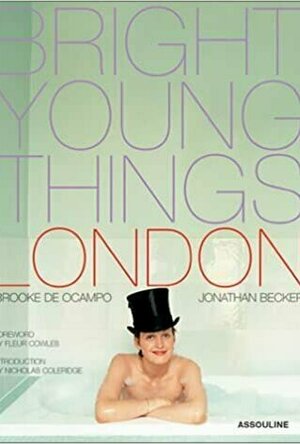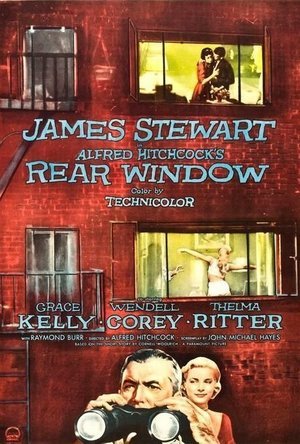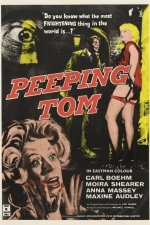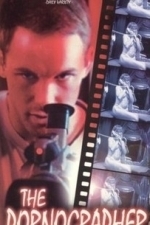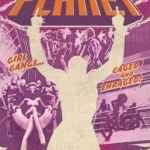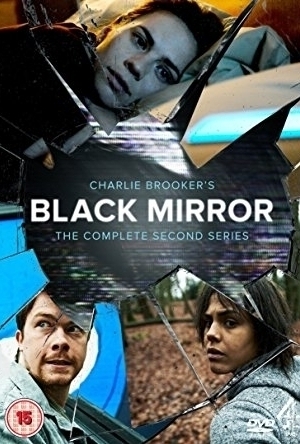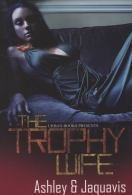Search
Search results
Donald Robertson recommended Bright Young Things: London in Books (curated)
Ed Helms recommended Rear Window (1954) in Movies (curated)
Jack Reynor recommended Peeping Tom (1960) in Movies (curated)
Jean-Pierre Gorin recommended The Pornographer (1999) in Movies (curated)
Louise (64 KP) rated Bitch Planet: Extraordinary Machine: Volume 1 in Books
Jul 2, 2018
I received this copy from Netgalley in exchange for an honest review
This a bind up of the first 5 comics in the series
First off I am not gonna lie, this wasn’t as good as I anticipated but does get better throughout. I really didn’t like the retro artwork that was going on, I felt that the artwork needed to be more sombre for this storyline. There is a lot of nudity in this book, like constantly and I really don’t think it was that necessary. I am not a prude but there was literally, tits, ass and vagina’s on every page
This graphic novel deals with several topics such as feminism, oppression, racism and voyeurism (lot’s of ism’s I know) so this book is not going to be for everyone. I liked the fact that not every women in this book had a bikini body, there were characters such as Penny that were bigger ladies and proud of it. There was also background information to why these women were on Bitch Planet, which helped with character development. The important message that is coming across in this graphic novel is that all women should be themselves and not to give a damn about other people’s opinions.I think the storyline is getting better as you get towards the end of this bind up and would be definitely interested in reading more
I had trouble with the layout as provided to me via Netgalley, it took the experience away from me and I would probably enjoyed it more in a physical format.
Overall I gave this 3 out of 5 stars.
This a bind up of the first 5 comics in the series
First off I am not gonna lie, this wasn’t as good as I anticipated but does get better throughout. I really didn’t like the retro artwork that was going on, I felt that the artwork needed to be more sombre for this storyline. There is a lot of nudity in this book, like constantly and I really don’t think it was that necessary. I am not a prude but there was literally, tits, ass and vagina’s on every page
This graphic novel deals with several topics such as feminism, oppression, racism and voyeurism (lot’s of ism’s I know) so this book is not going to be for everyone. I liked the fact that not every women in this book had a bikini body, there were characters such as Penny that were bigger ladies and proud of it. There was also background information to why these women were on Bitch Planet, which helped with character development. The important message that is coming across in this graphic novel is that all women should be themselves and not to give a damn about other people’s opinions.I think the storyline is getting better as you get towards the end of this bind up and would be definitely interested in reading more
I had trouble with the layout as provided to me via Netgalley, it took the experience away from me and I would probably enjoyed it more in a physical format.
Overall I gave this 3 out of 5 stars.
Mayhawke (97 KP) rated Elevator Pitch in Books
Jun 28, 2019
A nice return to U.S. crime fiction
Crime fiction is my thing. It's what I read most of, most of the time.
Over a decade ago I stopped reading crime fiction from the U.S. because I found what seemed to be a an unpleasant dwelling on the suffering of victims; a voyeurism which I found uncomfortable, and highly unpleasant. It was as though American crime writers were incapable of exploring the darkness of humanity, or giving clarity to events without relishing the pain and terror that must have been experienced by those on the receiving end of them.
Of course this was never true of all U.S. crime fiction, but I couldn't be asked to keep searching for the other kind. It was easier to just stay away from it all.
So, this is the first American crime novel I have read in nearly fifteen years.
What a joy it was. Barclay sets out a gripping thriller, an excellently plotted story which will educate you just a bit more than is comfortable on the ease of hacking lift controls in the technical age, whilst carefully leading you up and down the garden path a couple of times. The reading style is comfortable, the exposition is well paced. Eventually you arrive at a satisfying, and prompt conclusion. Barclay avoids the temptation to draw out the end like a cheerleader pulling gum, something that only works in Golden Era crime, and I always feel is out of place in otherwise fast-paced books of a more recent age.
Against this the characters have a slightly superficial feel, as though they have only been given the complexity they need for the book, and the denouement was not a huge surprise, though it was batted back and forth between two potential subjects nicely. But these really are minor complaints I really enjoyed this book and I will definitely be going back and reading some more of Linwood's books on the basis of this one.
Over a decade ago I stopped reading crime fiction from the U.S. because I found what seemed to be a an unpleasant dwelling on the suffering of victims; a voyeurism which I found uncomfortable, and highly unpleasant. It was as though American crime writers were incapable of exploring the darkness of humanity, or giving clarity to events without relishing the pain and terror that must have been experienced by those on the receiving end of them.
Of course this was never true of all U.S. crime fiction, but I couldn't be asked to keep searching for the other kind. It was easier to just stay away from it all.
So, this is the first American crime novel I have read in nearly fifteen years.
What a joy it was. Barclay sets out a gripping thriller, an excellently plotted story which will educate you just a bit more than is comfortable on the ease of hacking lift controls in the technical age, whilst carefully leading you up and down the garden path a couple of times. The reading style is comfortable, the exposition is well paced. Eventually you arrive at a satisfying, and prompt conclusion. Barclay avoids the temptation to draw out the end like a cheerleader pulling gum, something that only works in Golden Era crime, and I always feel is out of place in otherwise fast-paced books of a more recent age.
Against this the characters have a slightly superficial feel, as though they have only been given the complexity they need for the book, and the denouement was not a huge surprise, though it was batted back and forth between two potential subjects nicely. But these really are minor complaints I really enjoyed this book and I will definitely be going back and reading some more of Linwood's books on the basis of this one.
Ross (3282 KP) rated Black Mirror - Season 2 in TV
Jan 15, 2018
Series 2 includes 4 more episodes (three plus a Christmas special) of the cult Charlie Brooker series exploring the use of technology and extrapolating it to show where society could be headed.
We explore the use of our online personalities to recreate ourselves after we die (though this quickly became more about robots than the differences in our personalities between online and the real world so for me a trick missed to an extent).
We see a post-apocalyptic world where one woman wakes up to be haunted by people filming her on mobile phones while she runs from psychopaths trying to kill her. This is a look at how obsessed the world is with filming and documenting everything, even unpleasant events happening to other people, and voyeurism as a whole. There is a massive twist at the end which makes what was a jarring, inconsistent episode (as in doesn't fit in with the rest of the series) into an exceptional look at an aspect of the world (spoiler avoided).
I found the Waldo episode to be incredibly irritating. As if a rude, cartoonish character with tiny hands could ever really be taken seriously in the world of politics?! Waldo shows an echo of Ali G's rise to fame but takes it to the next level. While I don't think we are meant to actually find Waldo funny, I found him very annoying and a step too far. Weirdly he reminded me of the banter comedy in Nathan Barley (it turns out this story was originally written for Nathan Barley).
The Christmas special was possibly my favourite of the episodes, Rafe Spall and Jon Hamm (Don Draper) living in awkward circumstances in a cabin. We are led to believe they are working at a remote mining operation or some such and finally start to bond over Christmas dinner and open up. They share stories about their lives before they moved, all three showing the benefits and perils of the technology whereby people can stream their lives to others (and get real-time dating advice) but can also block others from their lives (whereby they are pixelated to you and vice versa). Parts of this story were truly harrowing, how a happy relationship could quickly turn sour and the technology mean years of upset that could be avoided.
We explore the use of our online personalities to recreate ourselves after we die (though this quickly became more about robots than the differences in our personalities between online and the real world so for me a trick missed to an extent).
We see a post-apocalyptic world where one woman wakes up to be haunted by people filming her on mobile phones while she runs from psychopaths trying to kill her. This is a look at how obsessed the world is with filming and documenting everything, even unpleasant events happening to other people, and voyeurism as a whole. There is a massive twist at the end which makes what was a jarring, inconsistent episode (as in doesn't fit in with the rest of the series) into an exceptional look at an aspect of the world (spoiler avoided).
I found the Waldo episode to be incredibly irritating. As if a rude, cartoonish character with tiny hands could ever really be taken seriously in the world of politics?! Waldo shows an echo of Ali G's rise to fame but takes it to the next level. While I don't think we are meant to actually find Waldo funny, I found him very annoying and a step too far. Weirdly he reminded me of the banter comedy in Nathan Barley (it turns out this story was originally written for Nathan Barley).
The Christmas special was possibly my favourite of the episodes, Rafe Spall and Jon Hamm (Don Draper) living in awkward circumstances in a cabin. We are led to believe they are working at a remote mining operation or some such and finally start to bond over Christmas dinner and open up. They share stories about their lives before they moved, all three showing the benefits and perils of the technology whereby people can stream their lives to others (and get real-time dating advice) but can also block others from their lives (whereby they are pixelated to you and vice versa). Parts of this story were truly harrowing, how a happy relationship could quickly turn sour and the technology mean years of upset that could be avoided.
BankofMarquis (1832 KP) rated Rear Window (1954) in Movies
May 14, 2020
Perfect Match of Director and Material
1954's REAR WINDOW is my favorite of all of the Alfred Hitchock films. So when it came time to expose my college-aged children to the works of "the Master of Suspense", it was a "no-brainer" as to which film it would be.
And...they loved it.
Starring "everyman" Jimmy Stewart and the always fabulous Grace Kelly, REAR WINDOW tells the tale of photographer L.B. Jefferies (Stewart) who is laid up in his New York apartment with a broken leg. His only means of entertainment is looking out of the "rear window" of his apartment into the courtyard - and the other apartments (and the people) therein.
This is a treatise on voyeurism and the pairing of this material with a master of film like Hitchcock is a marriage made in heaven. He sets up most of the movie so you are viewing the events as though you are Jefferies - confined to his apartment. Each apartment around the courtyard are their own little viewing boxes. He does a neat, subtle trick in this film. When he pans counter-clockwise, he is just browsing the apartments (like channel surfing on TV). When he pans clockwise - or goes straight to an apartment - he is focusing on that place/story. More often than not, the scenes in the apartments that Jefferies is looking at is mirroring what is going on in the relationship between Stewart and Kelly - sometimes with a sinister undertone. As always, Hitchcock ratchets up the suspense in a way only he can - focusing on a mundane item/thing until it becomes malevolent. This could have easily been a boring/static film, but in Hitchcock's capable hands, there is movement aplenty and the film flows beautifully.
As for the performances, Stewart has never been better as the audience stand-in/everyman who goes from charming scamp just snatching peeks of his neighbors to "peeping-tom" voyeur who is intruding in the private lives of his fellow courtyard denizens. Grace Kelly is just radiant in the way Hitchcock photographs her and in the way that all-time great costumer Edith Head dresses her. She is perfectly made-up and costumed to make her "the most beautiful woman in the world". But...what caught me in this viewing was how good of an acting job she does in this film. In previous viewings I was swept up in the look and feel of the actress. This time, I was taken in by the character and she became the one in this film I was rooting for. Well...either Grace Kelly or the great character actress Thelma Ritter as insurance nurse (and willing accomplice) Stella. She almost steals the movie from the two leads...almost.
All of the elements at play in this film work - acting, costuming, scenic design, cinematography and script - all wrapped up by a Master Director at the top of his game.
If you only watch one Alfred Hitchock film, make it REAR WINDOW. You'll be glad you did.
Letter Grade: A+
10 stars (out of 10) and you can take that to the Bank(ofMarquis)
And...they loved it.
Starring "everyman" Jimmy Stewart and the always fabulous Grace Kelly, REAR WINDOW tells the tale of photographer L.B. Jefferies (Stewart) who is laid up in his New York apartment with a broken leg. His only means of entertainment is looking out of the "rear window" of his apartment into the courtyard - and the other apartments (and the people) therein.
This is a treatise on voyeurism and the pairing of this material with a master of film like Hitchcock is a marriage made in heaven. He sets up most of the movie so you are viewing the events as though you are Jefferies - confined to his apartment. Each apartment around the courtyard are their own little viewing boxes. He does a neat, subtle trick in this film. When he pans counter-clockwise, he is just browsing the apartments (like channel surfing on TV). When he pans clockwise - or goes straight to an apartment - he is focusing on that place/story. More often than not, the scenes in the apartments that Jefferies is looking at is mirroring what is going on in the relationship between Stewart and Kelly - sometimes with a sinister undertone. As always, Hitchcock ratchets up the suspense in a way only he can - focusing on a mundane item/thing until it becomes malevolent. This could have easily been a boring/static film, but in Hitchcock's capable hands, there is movement aplenty and the film flows beautifully.
As for the performances, Stewart has never been better as the audience stand-in/everyman who goes from charming scamp just snatching peeks of his neighbors to "peeping-tom" voyeur who is intruding in the private lives of his fellow courtyard denizens. Grace Kelly is just radiant in the way Hitchcock photographs her and in the way that all-time great costumer Edith Head dresses her. She is perfectly made-up and costumed to make her "the most beautiful woman in the world". But...what caught me in this viewing was how good of an acting job she does in this film. In previous viewings I was swept up in the look and feel of the actress. This time, I was taken in by the character and she became the one in this film I was rooting for. Well...either Grace Kelly or the great character actress Thelma Ritter as insurance nurse (and willing accomplice) Stella. She almost steals the movie from the two leads...almost.
All of the elements at play in this film work - acting, costuming, scenic design, cinematography and script - all wrapped up by a Master Director at the top of his game.
If you only watch one Alfred Hitchock film, make it REAR WINDOW. You'll be glad you did.
Letter Grade: A+
10 stars (out of 10) and you can take that to the Bank(ofMarquis)
Beckie Shelton (40 KP) rated Trophy Wife (The Dumont Diaries, #0.5-5) in Books
Feb 8, 2018
MMM, this is a hard one, on the one hand, I very much enjoyed Trophy Wife and on the other, there was some real no no's that totally turn me off when it comes to erotic fiction.
This is the main reason I've marked it down in my ratings.
Now obviously what sinks my ship may float your boat and more, we are all different and you may find my reasons don't bother you at all.
Now there are gonna be some teeny spoilers ahead as It's major unavoidable if I am going to explain why I've marked this down.
My major hard limit
CHEATING!!!!!
and not only cheating, the fact that no one's really bothered and I know this may seem a bit boring, but I like my Lover & Lovee to save the honey for each other, no excuses, no we were on a break and definitely no contact of any kind whatsoever, no exceptions and that means kissing also.
Why you might ask.
BECAUSE THERE MEANT TO BE BLOODY IN LOVE!!!!!!
or getting there at least and I'm a die hard romantic like that.
So yes no bodily contact with others while still being as filthy as downright sin is the flavour I like to see in my reading.
So, of course, this is where Trophy Wife let me down a bit, I maybe could have overlooked this if either Nathan or Candy had got their knickers in a twist diva style or something to that effect, but no let's brush it under the carpet like it never happened, and yes it's still cheating in my book when he takes his ex-girlfriend back and sleeps with her while still being married to Candy.
So the poor boy needed to get his leg over with his ex to decide he's in love with his wife geez!!
What happened did a shag unlock his brain.
And I do know that Candy is not exactly innocent either, They both behaved like a pair of absolute bloody pillocks in my opinion.
The second thing I had an issue with was the car incident. I have nothing against voyeurism at all but when Nathan gets candy to perform a certain service for his business associate and calls her a derogatory name in front of him well this wasn't hot or sexy one iota I was cringing in shame for the poor girl, awful behaviour.
The third and final thing and it may seem a tad silly but it's the name CANDY!!!
I hate it, it sounds like a stereotypical strippers name, which I know Candy is, but couldn't the poor girl have had something more sophisticated than Candy.
Despite my above bugbears, I really did like the rest of this book. It was mucky as hell and hot hot hot.
The story flowed brilliantly and I especially loved seeing the inner thoughts of both Candy & Nathan.
I feel that we needed to see inside Nathan's head as well as if I hadn't I don't know if I could have warmed to him at all.
He was such a dominant man, his vulnerability was so well hidden that it was his musings inside is own head that showed he had a softer side.
Trophy Wife by Alessandra Torre gets a three & half from me a great read with some issues that for me are just personal preferences.
You they might not affect at all.
Trophy Wife is currently free on KU.
https://www.beckiebookworm.com/
https://www.facebook.com/beckiebookworm/
This is the main reason I've marked it down in my ratings.
Now obviously what sinks my ship may float your boat and more, we are all different and you may find my reasons don't bother you at all.
Now there are gonna be some teeny spoilers ahead as It's major unavoidable if I am going to explain why I've marked this down.
My major hard limit
CHEATING!!!!!
and not only cheating, the fact that no one's really bothered and I know this may seem a bit boring, but I like my Lover & Lovee to save the honey for each other, no excuses, no we were on a break and definitely no contact of any kind whatsoever, no exceptions and that means kissing also.
Why you might ask.
BECAUSE THERE MEANT TO BE BLOODY IN LOVE!!!!!!
or getting there at least and I'm a die hard romantic like that.
So yes no bodily contact with others while still being as filthy as downright sin is the flavour I like to see in my reading.
So, of course, this is where Trophy Wife let me down a bit, I maybe could have overlooked this if either Nathan or Candy had got their knickers in a twist diva style or something to that effect, but no let's brush it under the carpet like it never happened, and yes it's still cheating in my book when he takes his ex-girlfriend back and sleeps with her while still being married to Candy.
So the poor boy needed to get his leg over with his ex to decide he's in love with his wife geez!!
What happened did a shag unlock his brain.
And I do know that Candy is not exactly innocent either, They both behaved like a pair of absolute bloody pillocks in my opinion.
The second thing I had an issue with was the car incident. I have nothing against voyeurism at all but when Nathan gets candy to perform a certain service for his business associate and calls her a derogatory name in front of him well this wasn't hot or sexy one iota I was cringing in shame for the poor girl, awful behaviour.
The third and final thing and it may seem a tad silly but it's the name CANDY!!!
I hate it, it sounds like a stereotypical strippers name, which I know Candy is, but couldn't the poor girl have had something more sophisticated than Candy.
Despite my above bugbears, I really did like the rest of this book. It was mucky as hell and hot hot hot.
The story flowed brilliantly and I especially loved seeing the inner thoughts of both Candy & Nathan.
I feel that we needed to see inside Nathan's head as well as if I hadn't I don't know if I could have warmed to him at all.
He was such a dominant man, his vulnerability was so well hidden that it was his musings inside is own head that showed he had a softer side.
Trophy Wife by Alessandra Torre gets a three & half from me a great read with some issues that for me are just personal preferences.
You they might not affect at all.
Trophy Wife is currently free on KU.
https://www.beckiebookworm.com/
https://www.facebook.com/beckiebookworm/
Bob Mann (459 KP) rated Rear Window (1954) in Movies
Sep 29, 2021
“Hmm… must have splattered a lot”.
Maddy at Maddy Loves Her Classic Films is hosting The Alfred Hitchcockblogathon. A fine idea, celebrating the life and works of the “Master of Suspense”. My contribution comes from his 1954 masterpiece “Rear Window” starring James Stewart and Grace Kelly.
rw-poster
In one pan around his small apartment, and without a word of dialogue required, Hitchcock deftly fills in all the back-story you need: Stewart plays ace photo-journalist L.B. Jefferies, laid up from jetting the world to worn-torn regions by a broken leg in a full-cast with only his courtyard view to entertain him. In sweltering summer temperatures all the apartments are open to the elements, so he can be well entertained by the menagerie before him: “Miss Torso”, the scantily-clad and frequently showering ballerina; a sculptress with an eye towards Henry Moore; a struggling composer (who has his clock wound by someone very familiar!); a newly-wedded bride threatening to wear out the groom; a salesman and his bed-ridden wife; a dog-loving and balcony-sleeping couple; and “Miss Lonelyhearts” – a hard-drinking spinster forced to create imaginary male dinner-guests.
Stewart plays his usual ‘Mr Ordinary’ watching perfectly ordinary goings on in a perfectly ordinary apartment block.
Or not. Jefferies is drawn to some odd-events in the apartment of the salesman (Raymond Burr, still 13 years before his career-defining role in TV’s “Ironside”). His rampant suspicions infect not only his cranky middle-aged physiotherapist Stella (Thelma Ritter) but also his perfect (“too perfect”) girlfriend, the fashion expert Lisa (Grace Kelly). Of course his police friend Doyle (Wendell Corey) is having none of it… there is no evidence of any crime being committed. And the “murdered” wife has been seen being put on a train by her husband, and is sending him letters from the countryside.
Is Jefferies just going stir-crazy? Or is there really something to it?
The set for this film is masterly. Although depicting a genuine location in New York’s Greenwich village the huge set was constructed on the Paramount lot in Hollywood, and you can just imagine the army of carpenters and artists building the multi-layered structure.
It’s one of the stars of the film, allowing for a wealth of detail to be populated: in the apartments; in the street behind; even in the cafe over the other side of the street. And it’s this detail that really makes what could be a highly static film come alive. There are a half dozen films-within-the-film going on at once, with Stewart’s character – and you as the fellow-voyeur – having a multi-pass to watch them all simultaneously.
And watch he does. As what could be perceived as a seriously pervy character – something he is called out on by Stella – Jeffries gets to see an eyeful in particular of the shapely and scantily-clad ballerina (Georgine Darcy, agent-less and only paid $350 for the role!). These scenes must have been deemed quite risque for the year of release.
Where the film rather falters is in the bickering romance between Stewart and Kelly. As a hot-blooded man, I will declare that even today Kelly’s first dream-like appearance (with Vaseline lightly coating the lens) is breathtaking. She’s just the ‘girl-next-door’: if you live next to a palace that is! And yet (with Kelly 21 years Stewart’s junior) she’s just “too perfect” for L.B. , who feels (against her protestations) that she’s ‘too girly’ to hack the life of a war photographer on the road. The mysogeny, common for the day, is gasp-making: “If a girl’s pretty enough, she just has to ‘be'” intones Stewart, to no howls of protest or throwing of saucepans! In fact Kelly is greatly encouraged: “Preview of coming attractions” purrs Kelly, flaunting what she has around the apartment in a negligee.
These scenes though are rather overlong and somewhat get in the way of the murder mystery plot-line. Things really start to warm up when a death occurs, to piercing screams in the night: “Which one of you did it?” shouts a woman to the neighbourhood, as everything – momentarily – stops. “WHICH ONE OF YOU DID IT?”. Given your emotional involvement in the ongoing voyeurism, it’s hard as a viewer not to feel discomforted…. (“well, it wasn’t me”…. shifts uneasily in the seat).
From then on, Hitchcock proceeds to pile on suspenseful jolt after jolt, with first Lisa and then L.B. placed in harms way. While the perpetrator may seem clueless and incompetent, as most murderers of passion probably are, the denouement is satisfying, with a great trial use of green-screen ‘falling’ that would be perfected by Hitchcock for “Vertigo” four years later.
What’s curious for such as classic is that there are a number of fluffed lines in the piece: with two notable ones by Stewart and Kelly. Hitchcock was the master of long and uninterrupted takes, but did he not believe in re-shooting scenes when such errors occurred? Most odd.
Although tighter and more claustrophobic that some of his better known films, this is a firm favourite of mine. If you’ve never seen it, its well worth you checking out.
rw-poster
In one pan around his small apartment, and without a word of dialogue required, Hitchcock deftly fills in all the back-story you need: Stewart plays ace photo-journalist L.B. Jefferies, laid up from jetting the world to worn-torn regions by a broken leg in a full-cast with only his courtyard view to entertain him. In sweltering summer temperatures all the apartments are open to the elements, so he can be well entertained by the menagerie before him: “Miss Torso”, the scantily-clad and frequently showering ballerina; a sculptress with an eye towards Henry Moore; a struggling composer (who has his clock wound by someone very familiar!); a newly-wedded bride threatening to wear out the groom; a salesman and his bed-ridden wife; a dog-loving and balcony-sleeping couple; and “Miss Lonelyhearts” – a hard-drinking spinster forced to create imaginary male dinner-guests.
Stewart plays his usual ‘Mr Ordinary’ watching perfectly ordinary goings on in a perfectly ordinary apartment block.
Or not. Jefferies is drawn to some odd-events in the apartment of the salesman (Raymond Burr, still 13 years before his career-defining role in TV’s “Ironside”). His rampant suspicions infect not only his cranky middle-aged physiotherapist Stella (Thelma Ritter) but also his perfect (“too perfect”) girlfriend, the fashion expert Lisa (Grace Kelly). Of course his police friend Doyle (Wendell Corey) is having none of it… there is no evidence of any crime being committed. And the “murdered” wife has been seen being put on a train by her husband, and is sending him letters from the countryside.
Is Jefferies just going stir-crazy? Or is there really something to it?
The set for this film is masterly. Although depicting a genuine location in New York’s Greenwich village the huge set was constructed on the Paramount lot in Hollywood, and you can just imagine the army of carpenters and artists building the multi-layered structure.
It’s one of the stars of the film, allowing for a wealth of detail to be populated: in the apartments; in the street behind; even in the cafe over the other side of the street. And it’s this detail that really makes what could be a highly static film come alive. There are a half dozen films-within-the-film going on at once, with Stewart’s character – and you as the fellow-voyeur – having a multi-pass to watch them all simultaneously.
And watch he does. As what could be perceived as a seriously pervy character – something he is called out on by Stella – Jeffries gets to see an eyeful in particular of the shapely and scantily-clad ballerina (Georgine Darcy, agent-less and only paid $350 for the role!). These scenes must have been deemed quite risque for the year of release.
Where the film rather falters is in the bickering romance between Stewart and Kelly. As a hot-blooded man, I will declare that even today Kelly’s first dream-like appearance (with Vaseline lightly coating the lens) is breathtaking. She’s just the ‘girl-next-door’: if you live next to a palace that is! And yet (with Kelly 21 years Stewart’s junior) she’s just “too perfect” for L.B. , who feels (against her protestations) that she’s ‘too girly’ to hack the life of a war photographer on the road. The mysogeny, common for the day, is gasp-making: “If a girl’s pretty enough, she just has to ‘be'” intones Stewart, to no howls of protest or throwing of saucepans! In fact Kelly is greatly encouraged: “Preview of coming attractions” purrs Kelly, flaunting what she has around the apartment in a negligee.
These scenes though are rather overlong and somewhat get in the way of the murder mystery plot-line. Things really start to warm up when a death occurs, to piercing screams in the night: “Which one of you did it?” shouts a woman to the neighbourhood, as everything – momentarily – stops. “WHICH ONE OF YOU DID IT?”. Given your emotional involvement in the ongoing voyeurism, it’s hard as a viewer not to feel discomforted…. (“well, it wasn’t me”…. shifts uneasily in the seat).
From then on, Hitchcock proceeds to pile on suspenseful jolt after jolt, with first Lisa and then L.B. placed in harms way. While the perpetrator may seem clueless and incompetent, as most murderers of passion probably are, the denouement is satisfying, with a great trial use of green-screen ‘falling’ that would be perfected by Hitchcock for “Vertigo” four years later.
What’s curious for such as classic is that there are a number of fluffed lines in the piece: with two notable ones by Stewart and Kelly. Hitchcock was the master of long and uninterrupted takes, but did he not believe in re-shooting scenes when such errors occurred? Most odd.
Although tighter and more claustrophobic that some of his better known films, this is a firm favourite of mine. If you’ve never seen it, its well worth you checking out.
